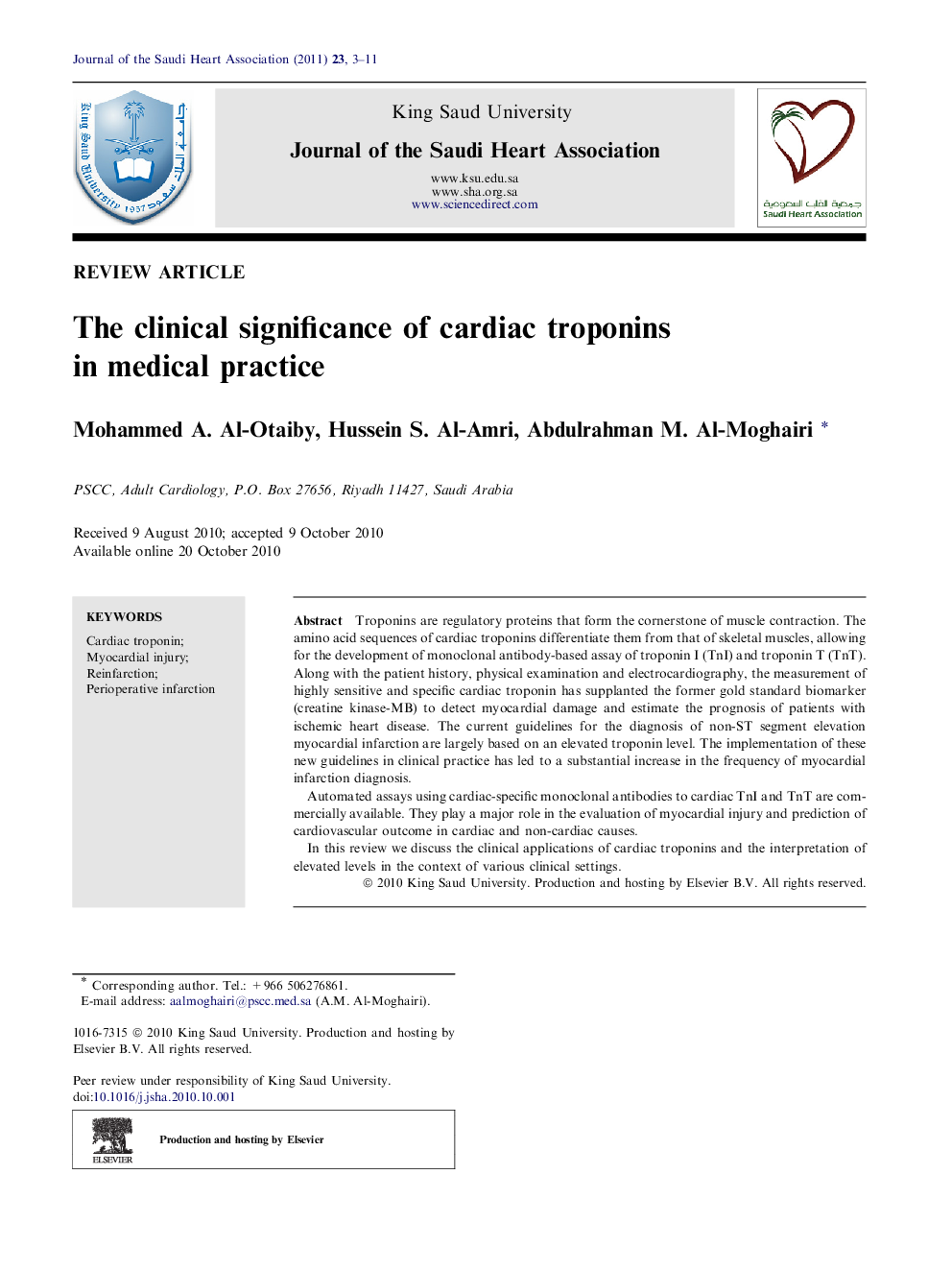| Article ID | Journal | Published Year | Pages | File Type |
|---|---|---|---|---|
| 2978068 | Journal of the Saudi Heart Association | 2011 | 9 Pages |
Troponins are regulatory proteins that form the cornerstone of muscle contraction. The amino acid sequences of cardiac troponins differentiate them from that of skeletal muscles, allowing for the development of monoclonal antibody-based assay of troponin I (TnI) and troponin T (TnT). Along with the patient history, physical examination and electrocardiography, the measurement of highly sensitive and specific cardiac troponin has supplanted the former gold standard biomarker (creatine kinase-MB) to detect myocardial damage and estimate the prognosis of patients with ischemic heart disease. The current guidelines for the diagnosis of non-ST segment elevation myocardial infarction are largely based on an elevated troponin level. The implementation of these new guidelines in clinical practice has led to a substantial increase in the frequency of myocardial infarction diagnosis.Automated assays using cardiac-specific monoclonal antibodies to cardiac TnI and TnT are commercially available. They play a major role in the evaluation of myocardial injury and prediction of cardiovascular outcome in cardiac and non-cardiac causes.In this review we discuss the clinical applications of cardiac troponins and the interpretation of elevated levels in the context of various clinical settings.
